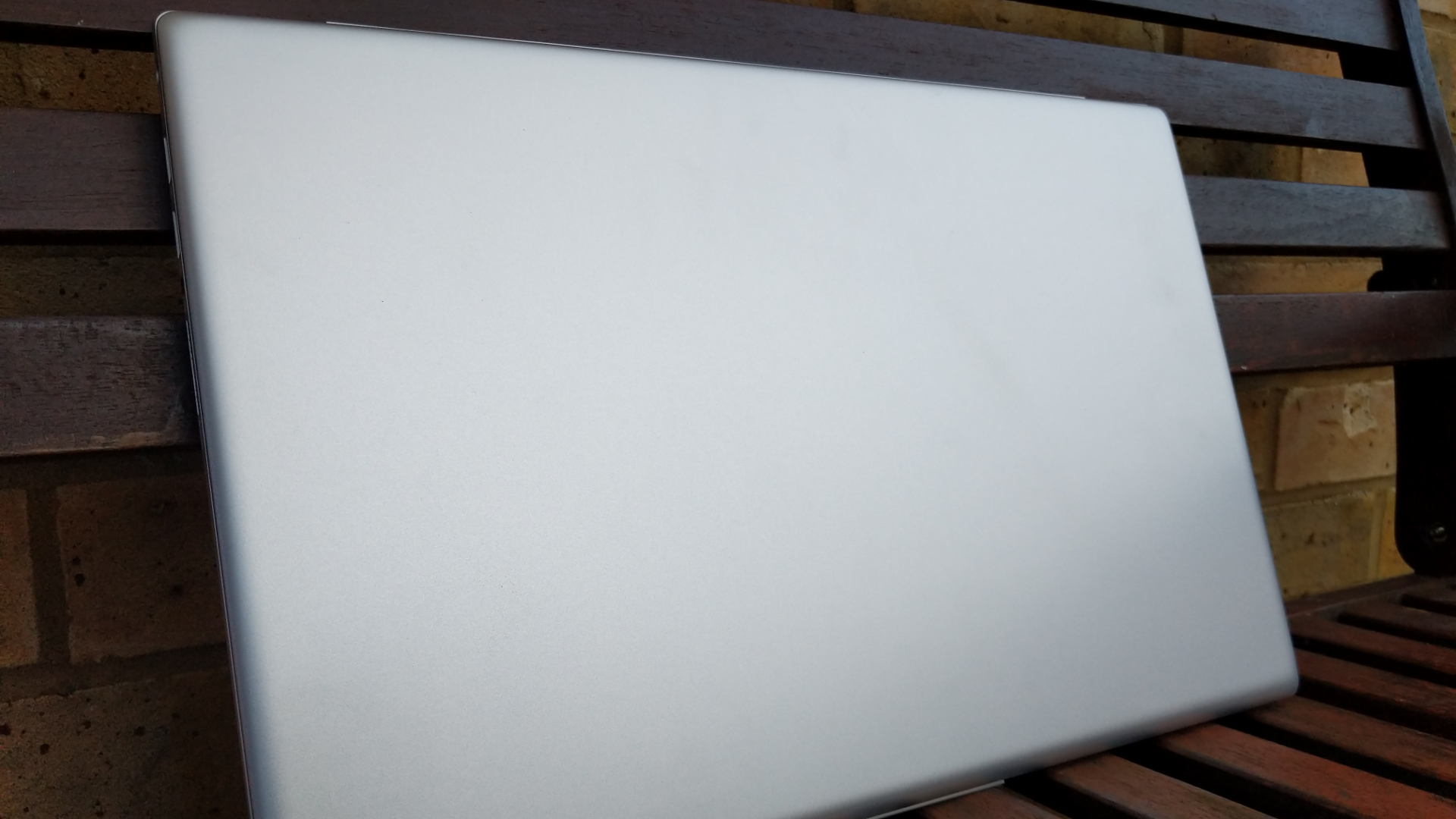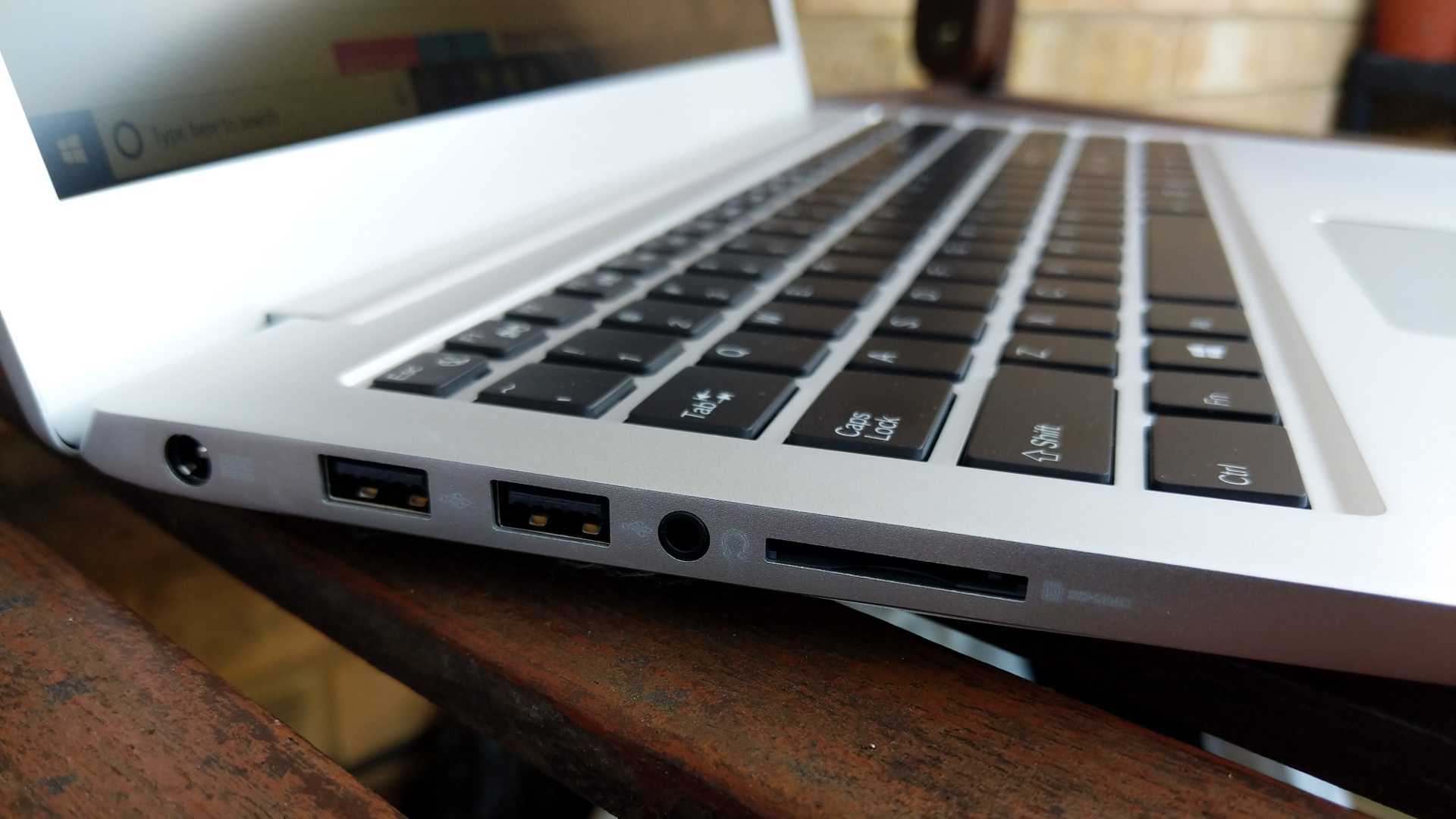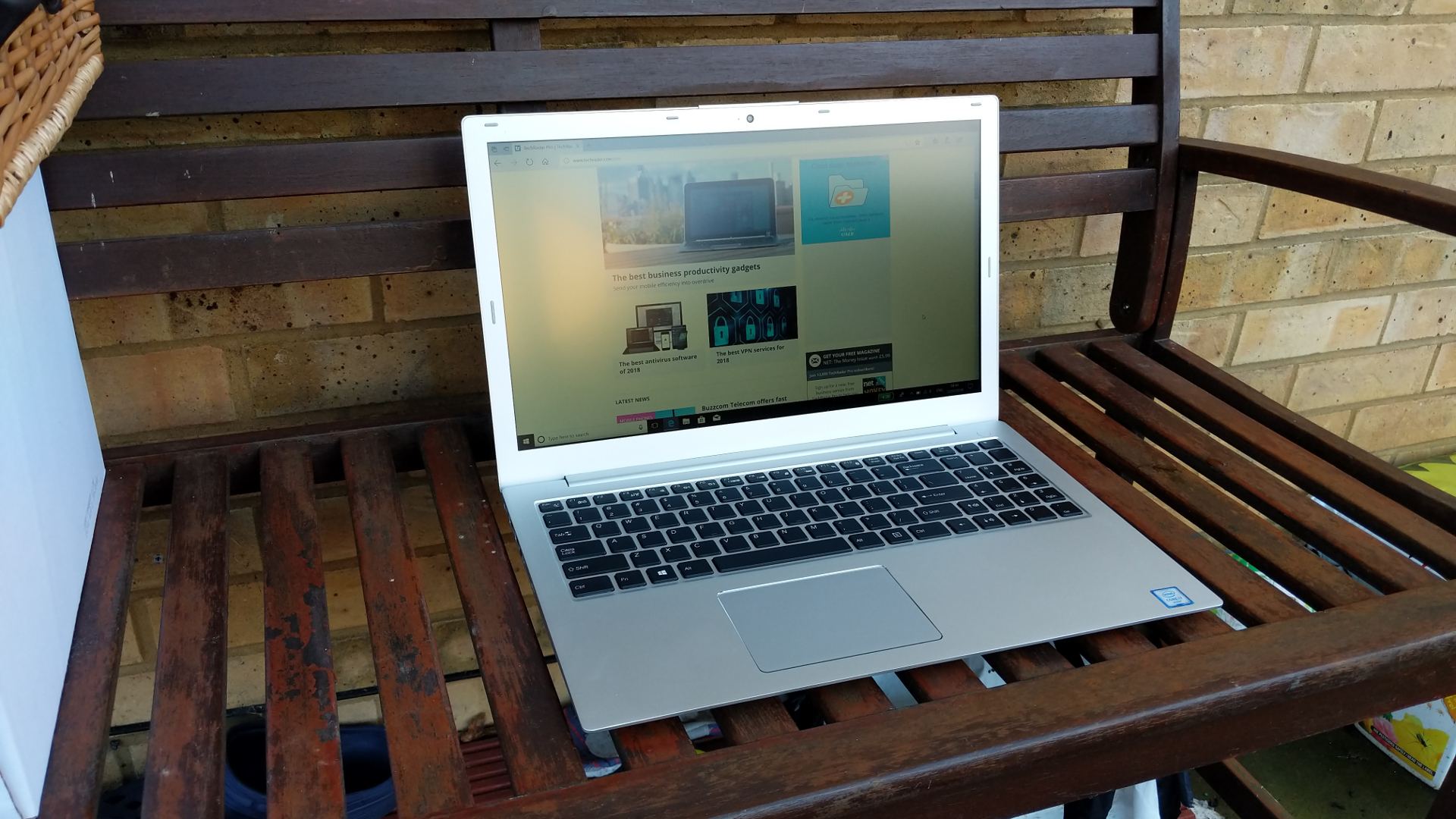TechRadar Verdict
The Voyo i7 is an impressive notebook in many ways considering the asking price and the hardware inside, but it has flaws, and being shipped from China – with the likely import charges involved therein – is another downside.
Pros
- +
1TB storage
- +
A real numeric keypad
- +
Great price for the configuration
Cons
- -
Noisy fan
- -
Runs with a hard disk, not SSD
Why you can trust TechRadar
It probably didn’t take Voyo’s marketing team longer than a few seconds to decide that the firm’s new flagship notebook would be called the i7. Why that name? Well, it’s powered by an Intel Core i7 processor, so naturally enough, that’s likely to be the reason.
Online Chinese retailer, Gearbest, sent us the sample and sells the Voyo i7 for £437 ($615) at the time of writing. Note that, while this price includes delivery, it is exclusive of any taxes that may be levied by HMRC or the courier companies on behalf of the vendor. Want to buy tech from online Chinese retailers? Read this first.
There haven’t been many high-end, non-gaming laptops originating from mainland China, although that seems to be changing gradually based on recent arrivals. The best known and most popular models until now have been the Xiaomi Mi Notebook Pro and the Xiaomi Mi Notebook Air.
Civiltop, ENZ, BBEN and Mechrevo have been focusing on the fast-growing Chinese gaming community, while Alldocube, Airbook, Jumper, Teclast and Voyo have been vying for the discerning audience looking for more powerful and upmarket laptops.
Design
There’s something eerily familiar about this notebook, which isn’t really surprising, as it’s the umpteenth laptop we’ve reviewed that tries to emulate the MacBook range with the same core design principles. A central hinge? Check. Brushed metallic finish? Check. Tiled black keys? Again, yep.

It uses metal for the chassis, something which helps – to a certain extent – with heat dissipation. A 15.6-inch display means that there’s plenty of space for extra ports: you get a headphone jack, an SD card slot, HDMI, four USB ports and a Type-C port plus a proprietary power connector – and there’s even a numeric keypad, great for spreadsheet aficionados. As expected, this laptop is heavy (1.9kg) and rather big (375 x 245 x 18mm).

You will also notice that there’s no stickers or branding on the notebook other than the ubiquitous Intel sticker. Also absent is the optical drive that adorns so many laptops of this size.

Here is the Voyo i7 configuration sent to TechRadar Pro for review:
CPU: Intel Core i7-6500U dual-core 2.6GHz
Graphics: GeForce 940MX; Intel HD Graphics 520
RAM: 8GB DDR3
Screen: 15.6-inch 1920 x 1080 resolution display
Storage: 1TB Seagate Guardian hard disk
Ports: 4 x USB Type-A, 1 x USB Type-C, audio jack, card reader
Connectivity: 802.11ac Wi-Fi, Bluetooth 4.0
Camera: 0.3MP front webcam
Weight: 1.9kg
Size: 375 x 245 x 18mm (W x D x H)
Battery: 13Ah
While not an overt aspiration, with this machine, Voyo is attempting to exploit the massive void left by Apple – remember that the MacBook Pro (15.6-inch) costs four times more than the i7.
Sign up to the TechRadar Pro newsletter to get all the top news, opinion, features and guidance your business needs to succeed!
Specifications
The Voyo i7 is a puzzling laptop when it comes to hardware choices. It has a dedicated graphics card, the Nvidia 940MX, but it uses DDR3 memory rather than the far faster GDDR5 flavor.
But there’s worse: it runs with a hard disk drive rather than an SSD. Yes, a spinning, mechanical, noisy hard drive. Sure, it is a 1TB model, but come on Voyo, this is 2018 – not 2013.
We’d rather opt for a speedy 128GB SSD than a 1TB Seagate hard drive spinning at 5400rpm.
Another example of corner-cutting is the fact that the notebook uses a TN screen rather than an IPS panel, which means viewing angles are likely to be severely hampered and color reproduction below par.

Désiré has been musing and writing about technology during a career spanning four decades. He dabbled in website builders and web hosting when DHTML and frames were in vogue and started narrating about the impact of technology on society just before the start of the Y2K hysteria at the turn of the last millennium.
